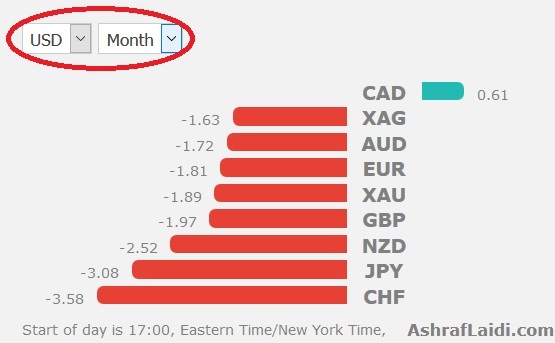We warned earlier to watch the Iran nuclear situation closely, and it became the dominant theme to start the week with Israeli prime minister Netanyahu arguing for action against Iran. The US dollar was the top performer on the day while the New Zealand dollar lagged. We take a look at May seasonals as the new month begins. A new Premium trade in a major index was posted earlier today. It is currently 150 pts in the green.
Geopolitics is always a guessing game. The talk always exceeds the action but people and markets are fearful by nature. On Monday, Netanyahu revealed that Israeli intelligence uncovered a trove of documents showing how Iran had worked on nuclear weapons from 1995-2003 and had preserved the knowledge it acquired in that time.
Without getting into the details, there are two questions: 1) Will anyone attack Iran? 2) Will there be new sanctions with the US leaving the Iran nuclear deal at the May 12 deadline.
The first remains extremely unlikely at this point, despite some hawks in the White House. War is unpopular in the US and would have no support in Europe. On the second question, the market is leaning towards expecting sanctions, despite opposition from European leaders. Oil jumped more than $1 from the lows Monday on Netanyahu’s speech.
That might be the wrong takeaway. Instead, this could be the next wave of a coordinated US-Israel PR campaign aimed at new sanctions against Tehran. If so, it didn’t appear very coordinated Monday. In comments after Netanyahu’s speech, Trump said the same things he’s been saying about Iran for more than a year and highlighted that all options were still on the table. More likely, it was a solo attempt by Israel to influence leaders in the west who are reluctant and that perhaps Trump himself is reluctant.
We will be watching Trump’s twitter closely for clues. The calendar now turns to May for the forex market. Seasonal patterns performed well in April and some seemed to get a head start on May.
One is Australian and New Zealand dollar weakness. They were strong to start April but cratered late in the month. The seasonal picture remains dark with May as the worst month for AUD and third-worst for NZD. It shouldn’t be a surprise that it’s also a tough month for base metals.
Global equity markets were strong in April, especially outside the United States. The old adage about selling in May doesn’t really apply. It’s a weaker month than April, but by no means a poor month.
It is, however, the weakest month on the calendar for the euro and with EUR/USD testing 1.20, it could get weak in a hurry.

